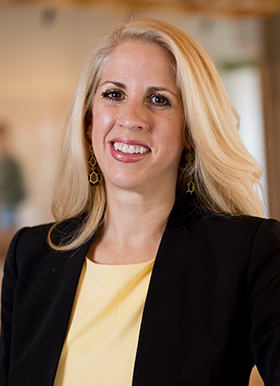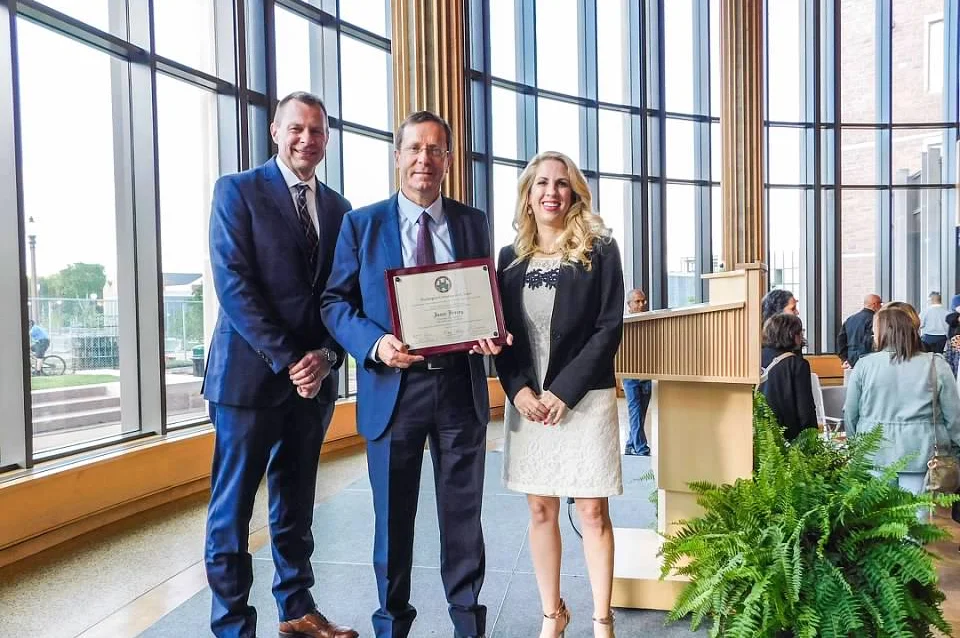Drawing from the areas of economics, business, medicine, public policy, social work, and sociology, the Social Policy Institute (SPI) at Washington University provides a systems-level understanding of policy problems and promotes corresponding solutions.
Social policy research focuses on the many ways in which the world’s societies meet people’s needs for security, education, work, health, and wellbeing. By applying the lessons learned in research, social policy addresses global challenges that arise and evolve through social, political, economic, and environmental change.
The institute’s impact and partnerships are diverse and longstanding. Through inclusive research and meaningful partnerships in Israel and beyond, SPI furthers its mission to create a world with equitable social and economic opportunities for every individual now and for future generations.
The outbreak of COVID-19 spurred university researchers to join international collaborators in pursuit of high-impact projects that address the public health and social outcomes of COVID-19. With seed grant funding from the McDonnell International Scholars Academy, the teams published research, shaped policy, and developed lessons for future pandemics.

“The COVID-19 pandemic has touched every corner of the globe, with the United Nations stating that COVID-19 ‘will not end for anyone, until it ends for everyone’,” said Michal Grinstein-Weiss, the Shanti K. Khinduka Distinguished Professor at the Brown School and founding director of SPI. “As a result, fostering and building international partnerships was needed more than ever during the COVID-19 pandemic. Our team remained steadfast in our shared research priorities as the pandemic continued.”
The Social Policy Institute’s projects in Israel included a comparative study of the U.S. and Israel designed to investigate the immediate and long-term economic impacts of COVID-19 on household welfare in each country and assess how government policies and programs can mitigate the negative effects of the pandemic on household well-being. The study, conducted with Reichman University and Hebrew University of Jerusalem, included additional waves of surveys that helped generate important data on vaccination and Israel’s pandemic recovery.
Moreover, SPI investigated the disproportionate hardships among different religious sectors affected by the pandemic, how women with young children fared after leaving the workforce, and vaccination uptake and perceptions among adults and children.
One of the key global policy wins from the last few years regarded the impact of SPI’s research on children’s mental health during the early COVID-19 outbreaks in Israel. Through a research presentation to the Israeli Knesset (equivalent to U.S. Congress), policy legislators were able to consider evidence showing how COVID-19 isolation affected children and their mental health. As a result, COVID-19 isolation policies in schools were adjusted to enable more non-infected children to remain in school.
Research highlights
Household Spending Patterns and Hardships during COVID-19: A Comparative Study of the U.S. and Israel draws on national surveys conducted early in the pandemic to investigate COVID-19’s effects on self-reported consumer spending behaviors and hardship experiences for households in Israel and the U.S., two countries with very different responses to the pandemic.
Pandemic Isolation Increases Negative Behaviors Among Children in Israel shows that isolation as a result of COVID-19 exposure is a key public health protocol to mitigate the spread of the virus; however, new survey results indicate increased isolations are associated with anger, violence, difficulties sleeping, and prolonged screen time.
Prevalence of Long-COVID Among Low-Income and Marginalized Groups: Evidence From Israel examined the number of long COVID symptoms suffered by people who recovered from severe or acute infection. The study found that the poorer respondents averaged almost double the number of symptoms than the wealthier respondents.
Child Development Accounts in Israel
Building upon a decade of work under Michal Grinstein-Weiss’ leadership, the Israeli government established a universal child savings account program in 2017, the Savings for Every Child Program (SECP), to give all 3 million children in Israel the ability to jump-start their futures. The goal is to advance long-term asset-building and child development among Israelis at birth or at early ages. SPI serves as the research and evaluation partner to the National Insurance Institute of Israel (NII) and disseminates results to inform global policies. Learn more about the research agenda for the Saving for Every Child Program (SECP).
More than 30 years of Washington University’s research on Child Development Account (CDA) policies and programs in Israel, Singapore, the United States, Taiwan, Uganda, Korea, and mainland China are documented in Inclusive Child Development Accounts: Toward Universality and Progressivity(2020), edited by Jin Huang, Li Zou, and Michael Sherraden. “The long-term vision for CDAs across the globe remains consistent: to support the growth and development of all children to ensure their greatest potential,” write the editors in the introduction.
Related content
“How are Children Faring During the Pandemic?”
Professor Michal Grinstein-Weiss addresses the McDonnell International Scholars Academy International Symposium Research Forum, 2021.
COVID-19’s economic impact
Professor Michal Grinstein-Weiss’ provides commentary on Covid-19’s economic impact in Washington Magazine. (This regards impact in U.S., as part of the comparative study on U.S. and Israel)
Social Policy Institute studies
Access a list of high-impact studies the Social Policy Institute has conducted in Israel for the past four years.
